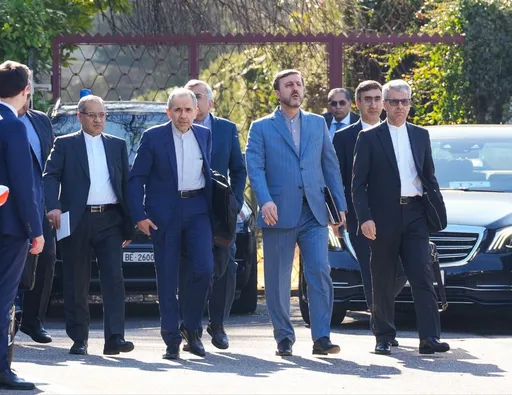Myanmar's leader Aung San Suu Kyi, facing outrage over violence that has forced nearly 400,000 Rohingya Muslims to flee to Bangladesh, will not attend the upcoming UN General Assembly because of the crisis, her office said on Wednesday.
The exodus of refugees, sparked by the security forces' brutal response to a series of attacks by suspected Rohingya insurgents, is the most pressing problem Suu Kyi has faced since becoming state counsellor last year.
Critics have called for her to be stripped of her Nobel peace prize for failing to do more to halt the strife which the UN rights agency said was a "textbook example of ethnic cleansing" and created a humanitarian catastrophe.
TRT World'sShamim Chowdhury has the latest.
Suu Kyi, in her first address to the UN General Assembly as leader in September last year, defended her government’s efforts to resolve the crisis over treatment of the Muslim minority.
This year, her office said she would not be attending because of the security threats posed by the insurgents and her efforts to restore stability.
"She is trying to control the security situation, to have internal peace and stability and to prevent the spread of communal conflict," Zaw Htay, the spokesman for Suu Kyi's office, said.
Dangerous crossing
Seven bodies believed to be those of Rohingya Muslims washed ashore in Bangladesh on Wednesday, officials said, highlighting the risks many of the persecuted group are taking to flee violence in neighbouring Myanmar.
At least 99 Rohingya are now known to have died making the perilous crossing on flimsy boats since the crisis erupted.
"We found seven bodies today washed up on our shore, including children," Border Guard Bangladesh commander Lieutenant Colonel SM Ariful Islam said.
He said several were from a Rohingya boat that capsized on Tuesday night near the border village of Shah Porir Dwip on the Naf river estuary that divides Myanmar and Bangladesh.
UN calls for more aid
A senior UN official said on Wednesday aid agencies have to step up operations "massively" in response to the arrival of more people, and the amount of money needed to help them has risen sharply.
The exodus of Muslim Rohingya to Bangladesh began on August 25 after suspected Rohingya insurgents attacked about 30 police posts and an army camp.
The attacks triggered a sweeping military counter-offensive by security forces in Buddhist-majority Myanmar which the UN rights agency said was a disproportionate response.
"We will all have to ramp up our response massively, from food to shelter," George William Okoth-Obbo, assistant high commissioner for operations at the UN refugee agency, said during a visit to the Kutupalong refugee camp in Bangladesh.
The UN said on Tuesday 370,000 people had crossed into Bangladesh but Okoth-Obbo estimated the figure was now 400,000. He declined to speculate on how many more might come.
Bangladesh was already home to about 400,000 Rohingya, who fled earlier conflict in Myanmar including a similar security crackdown in western Myanmar's Rakhine state in response to attacks in October.
Many of the new arrivals are hungry and sick, without shelter or clean water in the middle of the rainy season.
"We have an emergency within an emergency with conditions in existing camps," he said, pointing to a mud-clogged road in the camp.
Last week, the United Nations appealed for $77 million to cope with the crisis but Okoth-Obbo said that would not now be enough.























